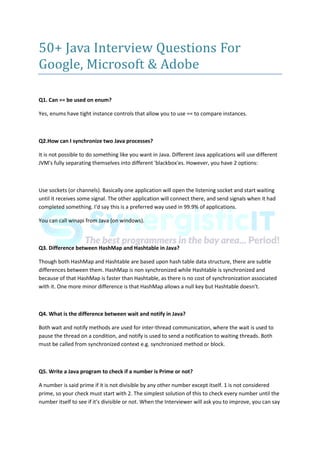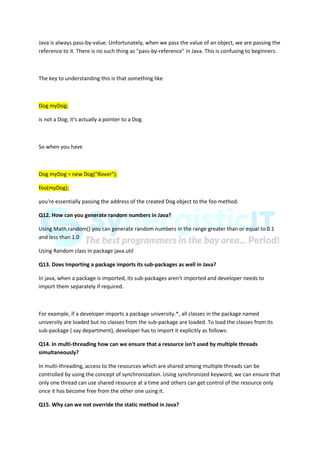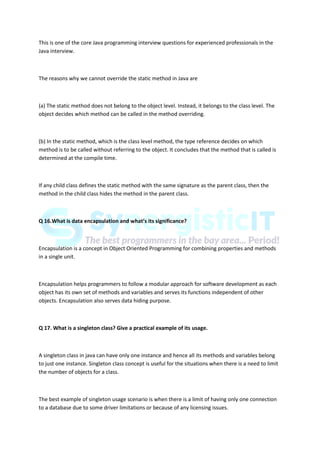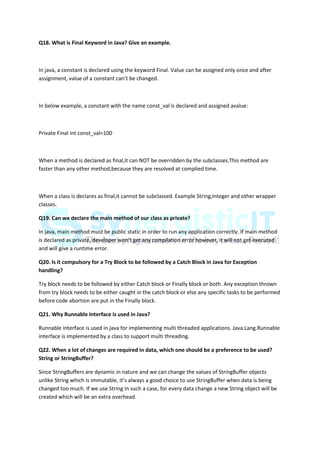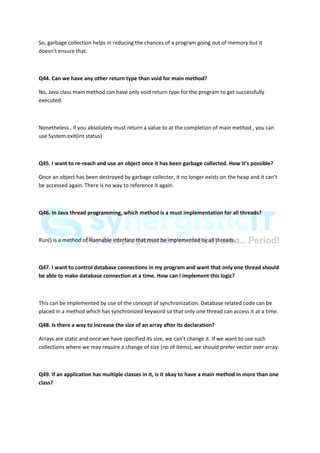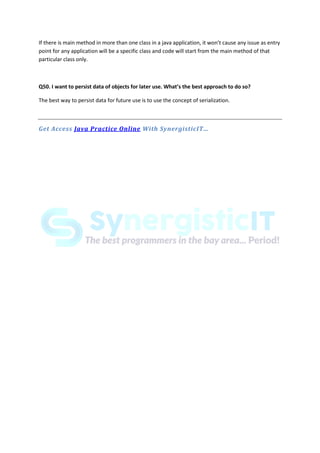This document contains 50 Java interview questions and answers related to core Java concepts like OOPs, multi-threading, collections etc. Some key questions include differences between HashMap and Hashtable, wait and notify methods, pass-by-value vs pass-by-reference in Java, difference between transient and volatile keywords, difference between association, composition and aggregation etc. The questions cover important topics that are commonly asked in Java interviews at companies like Google, Microsoft and Adobe.
